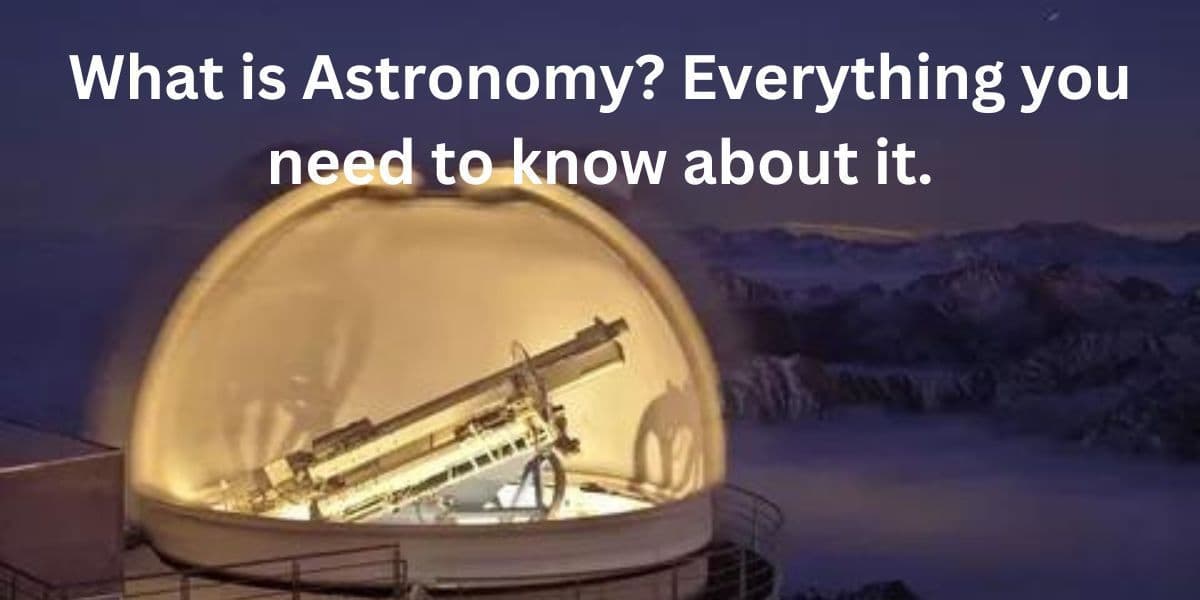
A Detailed Information About the Astronomy and Its Feilds
That's a good question, and you could be wondering if you're here. Perhaps we might begin by defining what astronomy isn't.
Modern "astrology" is not the same as astronomy. Astrology is an age-old practice with a wide range of applications. I won't claim to be an expert because I've never engaged in astrology, but it's obvious that there are many different levels of the practice, from reading your horoscope in the newspaper to those who make predictions based on the positions of planets and stars in relation to one another. And I'll leave it there.
Astronomy is a significant field.
What is Astronomy? At every level, astronomy IS the study of the cosmos. It includes studying whether there is life on Mars, using powerful telescopes to look back in time and watch galaxies merging, determining the composition of Jupiter, discovering planets around other stars by observing the shift in the star's spectrum as the planets orbit them, and a whole lot more. You better make a hasty exit if you inquire about your horoscope from an amateur (or expert) astronomer. The dialogue described above is a typical astronomy joke. When I say that I'm an "amateur astronomer," I typically receive a bewildered expression or a query about someone's zodiac sign. It occurs, but that's alright.
The goal of astronomy is to comprehend the structure and development of the cosmos. It encompasses practically infinite fields. In essence, if it's not about this planet, it's astronomical research. That covers a tonne of topics, even more than what we are currently aware of, as one could assume. A few examples of topics are as follows:
Stars
Nebula Planets
(The Sun) Sol
nebulas of stars
Galaxies
Galaxy groupings
Unlit matter
Dark spheres
Each of the topics is divided into various subtopics and academic fields. You can imagine how many fields of research can be pursued when you consider that research is conducted across the entire electromagnetic spectrum, including visible, x-ray, ultraviolet, and infrared light.
How do I define astronomy?
Have you ever pondered the unknown while gazing up at the night sky? Exist other types of life? Are there simply the two of us in this vast universe? Is cheese used to make the Moon? I guess you didn't wonder about that final one.
I've been mesmerized by the night sky for a long time. My love of astronomy has recently culminated in astrophotography, the acquisition of my first real telescope, and my current telescope project (10" Dobsonian), particularly during the fly-by of Comet Hyakutake (Comet C/1996 B2) in 1996. I see myself as the usual "amateur astronomer". I'm going to guess that when we were young, we were all enthralled with the night sky. The fact that more people don't experience that wonder as they age astounds me.
What is necessary to begin?
Not a lot. To see (or hear) the skies like your ancestors did, you'll need eyes, hearing, imagination, and a desire.
In order of importance, below are some items a beginner could want when starting out:
astrolabe, a star map, or both
participation in a neighborhood astronomy or space interest group
small- to medium-sized telescopes or binoculars
a tripod and a 35mm SLR camera for astrophotography in general
This is not even close to being a list of all the criteria. As previously mentioned, imagination and desire play a major role. It requires a passion to learn about the wonders of the universe. The rest can come after. The star chart is the first thing to buy after having the urge, and it comes with the strongest recommendation for beginning constellation studies.
This amazing "spectator sport" is astronomy. As you become aware of the vastness of the space and distances involved, as well as the size of things that are hundreds (or more) of lightyears away and large enough to shine their photons on your eyeballs, you'll find that it inspires awe and can undoubtedly be humbling.
Please feel free to enquire. I'd be pleased to help out if I can.
Appreciate the creator